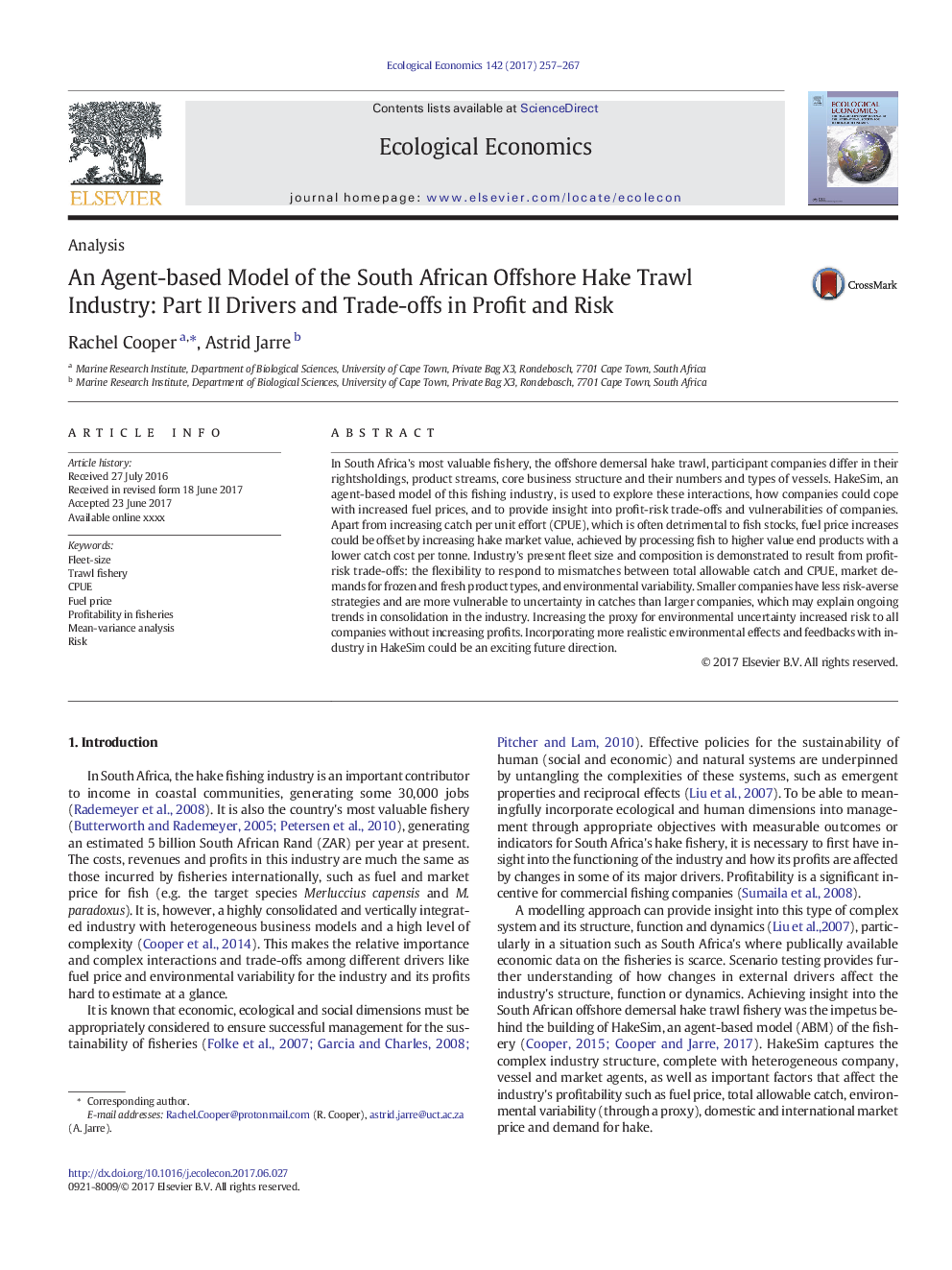ترجمه فارسی عنوان مقاله
یک مدل مبتنی بر عامل آفریقای جنوبی دریای خزر صنعت هک: بخش دوم رانندگان و تجارت در سود و خطر
عنوان انگلیسی
An Agent-based Model of the South African Offshore Hake Trawl Industry: Part II Drivers and Trade-offs in Profit and Risk
| کد مقاله | سال انتشار | تعداد صفحات مقاله انگلیسی |
|---|---|---|
| 109470 | 2017 | 11 صفحه PDF |
منبع

Publisher : Elsevier - Science Direct (الزویر - ساینس دایرکت)
Journal : Ecological Economics, Volume 142, December 2017, Pages 257-267

